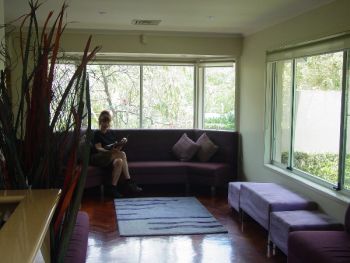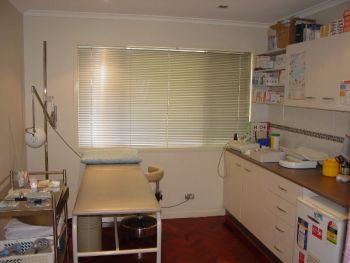Childhood Immunisations
Childhood Visits
Immunisation is a simple and effective way of protecting children from serious diseases. It not only helps protect individuals, it also protects the wider community by preventing the spread of disease. Vaccines work by triggering the immune system so that it is primed to respond when a vaccinated person comes into contact with that disease. The immune system is then able to respond more effectively to prevent the disease developing or reduce its severity.
The National Immunisation Program Schedule has established a timetable for vaccinations to children at birth, 2,4,6,12, and 18 months and then at 4 years of age. The vaccines are provided free of charge but there will be a charge for the consultation as we take this opportunity to monitor a child’s developmental progress.
Immunisation protects against many serious childhood illnesses including:
Students in Years 8 and 10 are also offered recommended vaccines through the school based programme. If you would rather your child have their vaccinations at the surgery they will still qualify for the free vaccine.
Vaccination is a very safe preventative tool but no medication can ever be regarded as 100% safe for all people. The benefits far outweigh the risks. These diseases can cause hospitalisation, ongoing health issues including brain damage and deafness and can prove fatal. High immunisation rates in the community have led to many diseases becoming rare but this can also lead to complacency and it is then that we see the return of outbreaks of pertussis and measles as has occurred recently. Maintaining a high rate of immunisation protects everyone.
Can my child be vaccinated if they are ill on the day?
Your child should not be vaccinated if they have a fever over 38.5oC. The doctor will examine your child and decide on the best course of action. Please be sure to advise the doctor of any previous adverse reaction or if your child is undergoing any other treatment.
Side Effects
Like any medication, vaccines may cause side effects. These are usually minor such as soreness at the injection site or mild fever. Most are short lived with no long term consequences and in fact a slight reaction is an indication that the vaccine is doing its job of triggering the immune system. Serious side effects are rare but if you have any concerns contact the surgery immediately.
Keeping a record
It is important to keep a record of your child’s vaccinations. This can be done in the Personal Health Record and will be recorded in your child’s electronic patient record for forwarding to the Australian Childhood Immunisation Register (ACIR). All this information is safeguarded by strict privacy laws and is used to allocate Centrelink benefits. Proof of vaccination may be needed when your child attends childcare or school. If you have moved around during the immunisation process you can access your child’s immunisation record from ACIR on 1800 653 809 free of charge.
If you have lived overseas and your child has received some vaccinations we need to see the records in order to establish an appropriate programme of vaccinations. Please bring these with you when attending the surgery or beforehand so that we can contact Queensland Population Health to create the correct schedule for your child.
Other Immunisations
The surgery is also happy to advise on vaccinations necessary for holiday travel. These vaccines are not provided free of charge, a prescription will be issued for you to fill and then you will need an appointment to attend the surgery for the injections to be given. The actual surgery visit will be bulk billed when private vaccines are provided by the patient and that is the only reason for attendance.
Routine season influenza, pneumonia and other vaccines are available at the surgery.
Childhood Visits
Immunisation is a simple and effective way of protecting children from serious diseases. It not only helps protect individuals, it also protects the wider community by preventing the spread of disease. Vaccines work by triggering the immune system so that it is primed to respond when a vaccinated person comes into contact with that disease. The immune system is then able to respond more effectively to prevent the disease developing or reduce its severity.
The National Immunisation Program Schedule has established a timetable for vaccinations to children at birth, 2,4,6,12, and 18 months and then at 4 years of age. The vaccines are provided free of charge but there will be a charge for the consultation as we take this opportunity to monitor a child’s developmental progress.
Immunisation protects against many serious childhood illnesses including:
- Whooping cough (pertussis)
- Measles
- German measles (rubella)
- Meningococcal C
- Pneumococcal disease
- Chickenpox (varicella)
- Tetanus
- Mumps
- Polio
- Diphtheria
- Rotavirus
- Hepatitis
Students in Years 8 and 10 are also offered recommended vaccines through the school based programme. If you would rather your child have their vaccinations at the surgery they will still qualify for the free vaccine.
Vaccination is a very safe preventative tool but no medication can ever be regarded as 100% safe for all people. The benefits far outweigh the risks. These diseases can cause hospitalisation, ongoing health issues including brain damage and deafness and can prove fatal. High immunisation rates in the community have led to many diseases becoming rare but this can also lead to complacency and it is then that we see the return of outbreaks of pertussis and measles as has occurred recently. Maintaining a high rate of immunisation protects everyone.
Can my child be vaccinated if they are ill on the day?
Your child should not be vaccinated if they have a fever over 38.5oC. The doctor will examine your child and decide on the best course of action. Please be sure to advise the doctor of any previous adverse reaction or if your child is undergoing any other treatment.
Side Effects
Like any medication, vaccines may cause side effects. These are usually minor such as soreness at the injection site or mild fever. Most are short lived with no long term consequences and in fact a slight reaction is an indication that the vaccine is doing its job of triggering the immune system. Serious side effects are rare but if you have any concerns contact the surgery immediately.
Keeping a record
It is important to keep a record of your child’s vaccinations. This can be done in the Personal Health Record and will be recorded in your child’s electronic patient record for forwarding to the Australian Childhood Immunisation Register (ACIR). All this information is safeguarded by strict privacy laws and is used to allocate Centrelink benefits. Proof of vaccination may be needed when your child attends childcare or school. If you have moved around during the immunisation process you can access your child’s immunisation record from ACIR on 1800 653 809 free of charge.
If you have lived overseas and your child has received some vaccinations we need to see the records in order to establish an appropriate programme of vaccinations. Please bring these with you when attending the surgery or beforehand so that we can contact Queensland Population Health to create the correct schedule for your child.
Other Immunisations
The surgery is also happy to advise on vaccinations necessary for holiday travel. These vaccines are not provided free of charge, a prescription will be issued for you to fill and then you will need an appointment to attend the surgery for the injections to be given. The actual surgery visit will be bulk billed when private vaccines are provided by the patient and that is the only reason for attendance.
Routine season influenza, pneumonia and other vaccines are available at the surgery.





